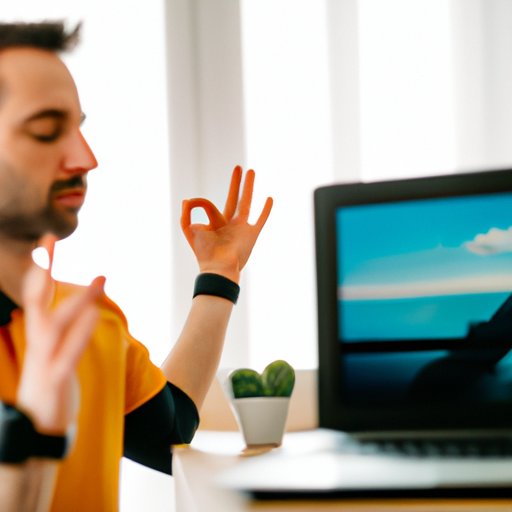Introduction
Overstimulation is when an individual experiences too much sensory input at once, which can lead to feeling overwhelmed and out of control. This can happen in any environment, but it is especially common in busy, noisy places with lots of people. It can be caused by things like loud noises, bright lights, strong smells, or crowded spaces. Everyone responds differently to overstimulation, but for some people, it can be a major source of stress and anxiety.
Identifying Your Triggers
The first step in avoiding overstimulation is to identify what causes you to become overwhelmed. Take note of the situations and environments that make you feel anxious or stressed, as well as the activities that help you to relax and calm down. Once you know what your triggers are, you can start to develop strategies for recognizing and managing them. For example, if crowded places make you anxious, you may decide to avoid those situations when possible.
Taking Regular Breaks
Taking regular breaks throughout the day can be a helpful way to manage your overstimulation. Breaks provide an opportunity to take a pause from whatever you’re doing and give your mind and body a chance to rest. Activities like going for a walk, listening to music, or talking with a friend can help break up the day and give you a chance to recharge.
Practicing Mindfulness and Meditation
Mindfulness and meditation can also be helpful tools for managing overstimulation. Mindfulness involves paying attention to the present moment without judgment, while meditation is the practice of focusing on your breath and calming your thoughts. Both of these activities can help to reduce stress and anxiety, and can be done anywhere. There are plenty of free resources available online to help get started with mindfulness and meditation.
Limiting Screen Time
Limiting your screen time can also be beneficial for reducing overstimulation. Too much screen time can cause us to become overwhelmed by the constant influx of information and images. Try to set limits on how much time you spend on your phone, computer, or other electronic devices each day. You can also use apps and other tools to help keep track of your screen time and remind you when it’s time to take a break.
Exercising Regularly
Regular exercise can be another great way to combat overstimulation. Exercise helps to regulate your body and can help reduce stress and anxiety. Any type of physical activity can be beneficial, so find something that works for you and try to make it part of your daily routine. Activities like walking, running, yoga, or dancing can all be great options.
Getting Enough Restful Sleep
Quality sleep is also important for managing overstimulation. When we don’t get enough sleep, our bodies and minds can become more easily overwhelmed. Make sure to get enough restful sleep each night by creating a consistent sleep schedule, avoiding screens before bedtime, and setting the right environment for sleeping. If necessary, talk to your doctor about any sleep issues you may be having.
Seeking Professional Help if Needed
If you find that you are still struggling with overstimulation despite trying the tips mentioned above, it may be time to seek professional help. Talk to your doctor or a mental health professional about your concerns and they can help you find the best treatment plan for your individual needs. They can also provide additional resources and support.
Conclusion
Overstimulation can have a negative impact on your mental health, but there are ways to manage it. By identifying your triggers, taking regular breaks, practicing mindfulness and meditation, limiting screen time, exercising regularly, getting enough restful sleep, and seeking professional help if needed, you can learn to better cope with overstimulation and lead a happier, healthier life.
(Note: Is this article not meeting your expectations? Do you have knowledge or insights to share? Unlock new opportunities and expand your reach by joining our authors team. Click Registration to join us and share your expertise with our readers.)
